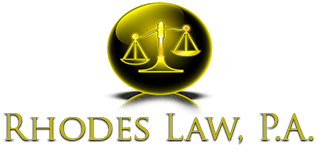The Importance of being Board Certified in Elder Law

Elder law is an area of law that focuses on providing legal services to seniors and their families. Elder law attorneys are specially trained to handle the unique legal issues that seniors and their families face. Elder law attorneys are knowledgeable about a wide range of issues, including estate planning, long-term care planning, guardianships, and Medicare and Medicaid planning. Elder law is an important part of the legal landscape in Melbourne, FL. The city is home to a large population of seniors, and there is a growing demand for elder law services. As the population of seniors in Melbourne continues to grow, it is important to be aware of the legal services available to them.
Importance of Board Certification
When it comes to elder law, it is important to find an attorney who is board certified. Board certification is a designation given to attorneys who have met certain educational and experience requirements. Board certified attorneys have demonstrated a higher level of expertise in their field, and they are better equipped to handle the complex issues that seniors and their families face. Board certified attorneys also have access to a network of other board certified attorneys who can provide assistance with cases that are outside of their expertise. This network of attorneys can provide invaluable resources to seniors and their families.
Advantages of Working with a Board Certified Elder Law Attorney
Working with a board certified elder law attorney has many advantages. Board certified attorneys are knowledgeable about the laws that affect seniors and their families. They understand the unique needs of seniors and their families, and they can provide the legal advice and guidance that is necessary to make informed decisions. Board certified attorneys are also familiar with the local court systems and the procedures that must be followed to obtain the desired results. This knowledge can be invaluable when it comes to navigating the complexities of elder law.
How to Find a Board Certified Elder Law Attorney in Melbourne, FL
Finding a board certified elder law attorney in Melbourne, FL can be a daunting task. Fortunately, there are a few resources that can help. The Florida Bar Association maintains a list of board certified attorneys, and this list can be accessed online. Additionally, the American Academy of Elder Law Attorneys (AAELA) also maintains a directory of board certified elder law attorneys. .It is also important to do some research on the attorney that you are considering. Check to see if the attorney has any disciplinary actions on their record, and read reviews from other clients to get an idea of the attorney’s experience and reputation. Once you have found a board certified elder law attorney it is important to schedule a consultation to discuss your legal needs. During the consultation, the attorney will be able to answer any questions that you may have and provide you with the legal advice that you need. Elder law is an important part of the legal landscape in Melbourne, FL, and it is important to be aware of the legal services available to seniors and their families. Rhodes Law is an elder law firm you can trust. Give our team a call today at (321) 610-4542 to learn more!
You might also like




